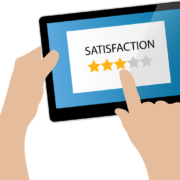Yelp Help
Yelp. Just the sound of that name brings joy to some and complete frustration to others. If you are a small business owner successfully and profitably running ads on Yelp, that’s fabulous, but you’re probably in the minority. If you are a small business owner and have a listing or reviews on Yelp, but have not claimed your business, keep reading. If you have claimed your business but find advertising on Yelp completely worthless, you’re not alone, and this article may offer some solutions for you.
Despite the horrible rating in BBB, and the many (MANY) issues that digital marketing firms and/or small business owners encounter when attempting to manage an ad campaign on that particular referral site, Yelp is NOT ALL BAD.
Let’s begin by explaining what an updated, accurate listing on Yelp CAN do for your small business. Yelp DOES:
- Provide an in-bound link that offers veracity and increased dominance in local SERP.
Allow Yelp users (we’ll talk about these people in a minute), to leave reviews for OTHER Yelp users (we’ll take about these people in a minute).
Allow you to list specific services you provide and create a personal “feel” to your profile so potential customers can decide if you’re a good fit for their particular need.
Allow direct messaging from Yelp users via the Yelp App to which an owner or manager can respond from their cell-phone, their email, or both. This is great if you offer any type of “rapid response” services such as plumbing or water damage clean up. You can communicate with a potential customer in real time, close the deal and be on the job site with little to no miscommunication.
Allow you to respond to reviews and demonstrate good customer service in response to both positive and negative remarks.
Allows “other advertisers” listings to be blocked. However, you must enter into a high-tier monthly spend 6 month minimum agreement with Yelp for this to take effect. (I’ll touch on this later.)
Allows businesses with highly visual products and services to showcase their work. This is great for boutique bakeries serving beautiful eclairs, or for a local photographer specializing in children’s portraits. Yelp is GREAT for this type of business.
Here’s some important features and services Yelp does NOT offer the small business owner:
- The inability to create specific ads for specific services. This CAN be acceptable if you are a housekeeping / maid service that also offers one-time deep cleans or other similar services because they are all represented in your company’s ad for “housekeeping services.” This inflexibility can be detrimental, however, if your company offers a variety of services like a concierge company. If you want to run ads for “dog walking” separate from “errands” and “house-sitting,” Yelp does NOT offer this capability. Yes, your ads for “concierge service” will show, but unless your staff is doing their due diligence on the intake form, you have no idea which services that Yelp user was looking for when your ad showed up. Services that will provide a greater ROI are obviously worth more per click, and if you only have the ability to run one ad to cover all services, this is not providing you, the small business owner, the data you need to determine if Yelp is really profitable. It’s been my experience, because I have yet to get data from Yelp to the contrary, that small business owners who run ads on Yelp pay the HIGHEST rate per click, regardless of which service the Yelp user was searching for. In other words, if the average Yelp cost for a “dog walking” click is $.80 but the average Yelp cost for a “errands running” click is $3.89, guess how much you’re paying for a dog-walking click? Yep, you guessed it, the higher rate. (Until I can see data from Yelp that contradicts this, I am presenting this as my own experience as an advertiser on Yelp and ad manager for clients with listings on Yelp.)
The inability to set a top limit to what you are willing to pay for a click: Again, this is based on the lack of data and control that Yelp offers a small business owner. How the Yelp algorithm determines what a click for a specific query is worth is a mystery. The account managers and sales managers whom I have spoken to at Yelp will not disclose this information. If Yelp *arbitrarily* determines that a carpet cleaning lead is worth $12, that’s what they charge per click, and the small business owner has no control over setting a limit on that number.
The inability to set specific geographical ad targeting: While you CAN list the specific cities you serve, if you are a pizza shop, you are likely limited by an actual radius, meaning that you are probably paying for Yelp clicks that are out of your service area.
The inability to ACCURATELY track where a call / click / lead came from: Most small business owners who are in NJ would scratch their head and wonder why they have paid for a click from a call in Portland, OR. According to Yelp, the “location” of the user is reported based on whatever town the user listed as their “hometown” in their profile. (I will leave this without further commentary, because, in my opinion, this is just sheer laziness on the part of Yelp in failing to track the location of the IP address that the query came from… Absurd.)
The inability to schedule ads: If you are a coffee shop that’s open in the morning and for lunch, your ads will run on Yelp whenever anyone searches “coffee shop near me” even if it’s 4 pm.So just when you’ve begun to think, “Forget Yelp!” I’m going to tell you not to. As I said in the beginning, Yelp is NOT ALL BAD. For many small business owners, Yelp is a great fit. This is how you EFFECTIVELY use Yelp.Enter into the top-tier agreement with Yelp if:
1. You have a huge marketing budget, and your goal is web dominance in a multi-city area.
2. AND you offer a VERY narrow offering of services like “Lawn Irrigation.” You don’t do landscaping, you don’t do lawn care, you ONLY do “Lawn Irrigation” or you only offer “Pest Control” or you only offer “Italian Eatery” (with multiple locations), or you are a “Public Golf Course”. Ok, moving on.Don’t enter a “mid-tier” agreement with Yelp at all, because regardless of the size of your business, they only offer 6 month contracts (at the time of the writing of this article anyway). If you are a small business and cannot afford the top-tier contract, I do not recommending entering into an agreement with Yelp that you WILL NOT get out of if things should go south for a season, or a slump in the economy, etc. Just don’t bother with any contract with Yelp unless you can afford to see that marketing money leave and not necessarily return.
Run ads on Yelp that YOU CONTROL and you can pause the campaign at any time. That’s how you control the spend on Yelp – you must physically pause the ads (which cannot be done if you’re in a contract). I recommend this option for small business owners if they meet this criteria:
1. Your business is seasonal – like a haunted house or a summer camp.
2. Your ad budget is limited.
3. You have the time and/or personnel to monitor the campaign every couple days and make sure you’re controlling the spend.
4. Your business is year-round, but you offer specials like “back-to-school haircuts” or “summer sale on flip-flops.”Claim your business profile on Yelp, and keep your listing updated. Add updated images, respond to reviews, add a link to leave reviews on your website, etc. This should be done by EVERY small business owner. Even if you’re not actively running an ad campaign on Yelp, users can still find your listing organically on that platform.
Which brings me to the last but not least important component of Yelp: The Yelp User. These are wonderful people. Yelp users are people who care about good customer service, who appreciate convenience (hence the app), and who are seeking to have a great experience AND THEN BRAG ABOUT IT ON YELP! Is there room for improvement in our relationship with Yelp? Absolutely, but the small business owner who understands Yelp (which now you are one of those super people), can make Yelp work for them without feeling like they’ve been taken to the (local 5-star) cleaner.





